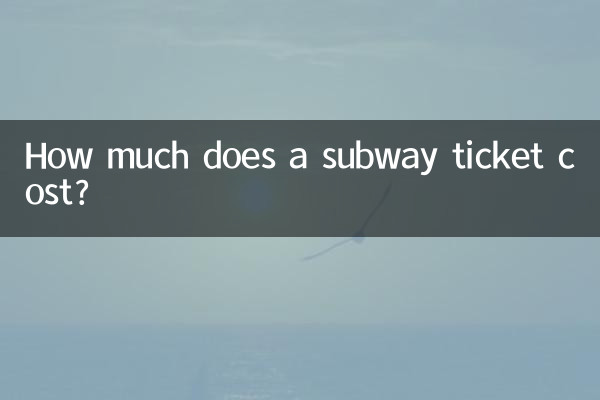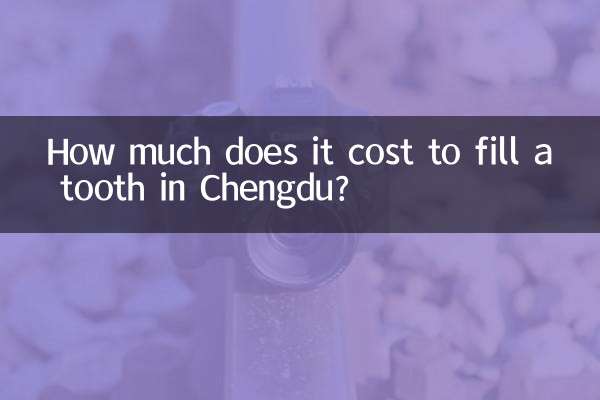How much does a subway ticket cost? Analysis of hot topics and hot content on the entire network in the past 10 days
Recently, topics such as subway fares and public transportation costs have triggered widespread discussions on social media and news platforms. The following is an analysis based on hot topics on the Internet in the past 10 days, including comparison of subway fare data, hot events and related suggestions.
1. Comparison of subway fares in major cities across the country

| city | Starting price (yuan) | Highest price (yuan) | Preferential policies |
|---|---|---|---|
| Beijing | 3 | 10 | 50% off for card holders, 25% off for students |
| Shanghai | 3 | 15 | Transfer discount of 1 yuan |
| Guangzhou | 2 | 14 | 40% off after 15 visits |
| Shenzhen | 2 | 14 | 5% off when paying with QR code |
| Chengdu | 2 | 10 | Sub-card discount |
2. Recent hot topics
1."Have subway fares increased?" caused controversy: Netizens in many cities reported fare adjustments for some lines, but official responses were mostly “optimizing billing rules” and the actual increase was not obvious.
2.Subsidies for new energy vehicles are declining, and subway passenger flow is picking up: With the reduction of new energy vehicle purchase subsidies, some commuters have returned to public transportation, and the average daily passenger flow of subways has increased by about 8%.
3.The phenomenon of “different subway prices in the same city” attracts attention: For example, the fares of cross-city subways (such as Beijing-Yanjiao) in the Beijing-Tianjin-Hebei region are higher than the city standards, and netizens call for unified pricing rules.
3. The three major issues that users are most concerned about
1.Why do fares vary so much?: Related to city operating costs and financial subsidies. For example, Beijing and Shanghai have relatively higher ticket prices due to higher labor and construction costs.
2.How to save money?: It is recommended to use a joint transportation card and pay attention to the "weekly card/monthly card" activities. In some cities (such as Hangzhou), you can also redeem discounts through credit points.
3.Will the price increase in the future?: Experts analyze that the possibility of significant fare adjustment in the short term is low, but some cities may pilot "dynamic pricing" (such as a slight increase during peak hours).
4. Practical suggestions
1. Download the official APP (such as "Metro" and "Guangzhou Metro") to check real-time fares;
2. Students, the elderly and other groups can apply for discount cards with their IDs;
3. Cross-city commuters can choose the "high-speed rail + subway" connection discount.
Summary: Subway fares are affected by many factors such as region and policy. It is recommended to choose the optimal travel plan based on your own needs. With the development of smart transportation, the future fare system will be more flexible, but the public welfare attribute will still be the core.

check the details

check the details